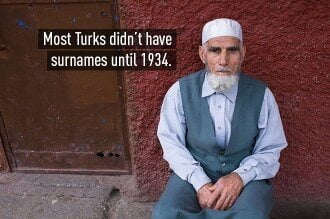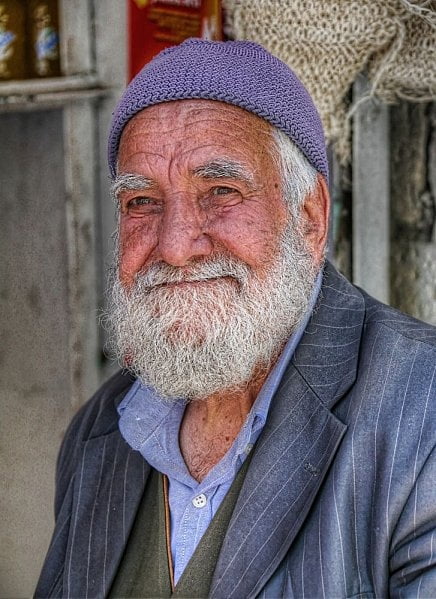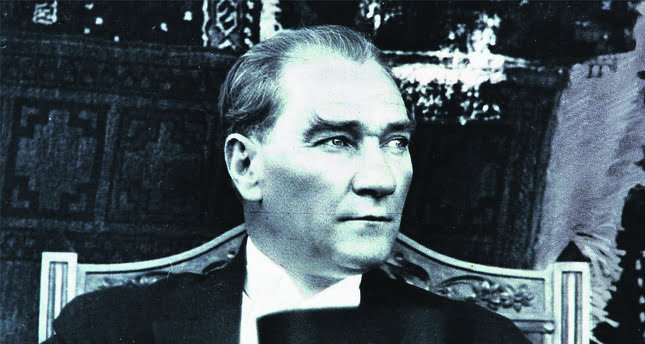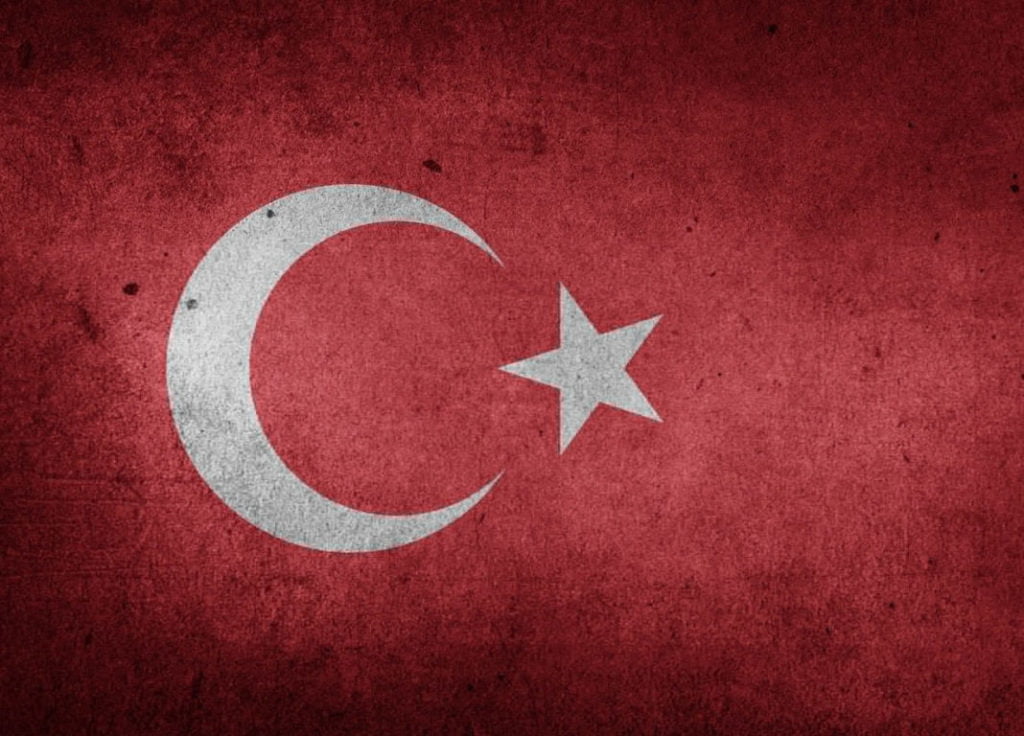When you think that in England surnames have been used since the 11th century, it is amazing that until 90 years ago the Turkish people didn’t have them
The Surname Law
The Surname Law was introduced in 1934 as part of Atatürk’s Reforms and required all citizens of Türkiye to choose a formal, legal family surname (soyadı)- a profound change in the life of Türks who had been dealing with a series of radical reforms in their newly established country.

Before 1934, Turks, as well as other ethnicities living in the Ottoman Empire, had no surname. People were addressed with titles like “hacı” (pilgrim), “hoca” (teacher), “ağa” (master), “paşa” (general), “hafız” (someone who has completely memorized the Quran), and so on. Others were called with a reference to their hometown, like “Konevi” (meaning from Konya).
The head of every household, in other words, the male in the-then 16-million-strong country had to find the most suitable surname for his family.
How were surnames chosen?
People adopted surnames related to their ancestors, historic events or simply related to the holder’s profession or personality
Some surnames came out of the father’s physical appearance like Pehlivan (wrestler) or Sakallı (bearded), while others preferred those giving clues to their personality, like Çalışkan (hard-working) or Güleryüz (smiling).

Some surnames hinted at the holder’s profession such as Kanat (wing) – someone who sold poultry.
Most people adopted surnames related to their ancestors and historical events: Kılıç (sword) and Osman (founder of Ottoman Empire) are such examples.
You will often see -oğlu (son of) as a suffix to first names and favourable adjectives (Eroğlu – son of soldier, Ramazanoğlu – son of Ramazan ) to derive Turkish surnames.
Mustafa Kemal Atatürk
The first to benefit from the new surname law was Mustafa Kemal, who was given the surname “Atatürk” (meaning: Father of the Turks) by the Grand National Assembly.
A secondary law stipulated that the surname “Atatürk” would be dedicated to Mustafa Kemal only, making it forbidden for anyone else. Even his sister received a different surname.

Most common surnames
In a survey carried out by the Turkish General Directorate of Population and Citizenships in 2013, the top ten most common surnames were Yılmaz (doesn’t give up), Kaya (rock), Demir (iron), Şahin (falcon), Çelik (steel), Yıldız (star), Yıldırım (lightening), Öztürk (pure Turk), Aydın (intellectual), Özdemir (pure iron).
Some others are Çelebi (Gentleman), Akbaş (White head), Kara (black), Uzun (Tall/long).
Note that you can use Öz (pure/genuine) and Er (virile) as a prefix to a lot nouns or first names (Özçelik, Erdoğan, etc.), and you can add -oğlu (son of) as a suffix to a lot of first names and favourable adjectives (Osmanoğlu, Güçlüoğlu) to derive Turkish surnames.
Did you know?
Since 2014, women in Türkiye have been allowed to keep their birth name instead of taking their husband’s name. Prior to this date, it was compulsory for a woman to take her husband’s surname after marriage.
Click here for more Turkish surnames and their meanings.
Sources: Anadolu Agency/Wikipedia
This article was first published on 5 December 2021 and updated on 21 July 2024.








